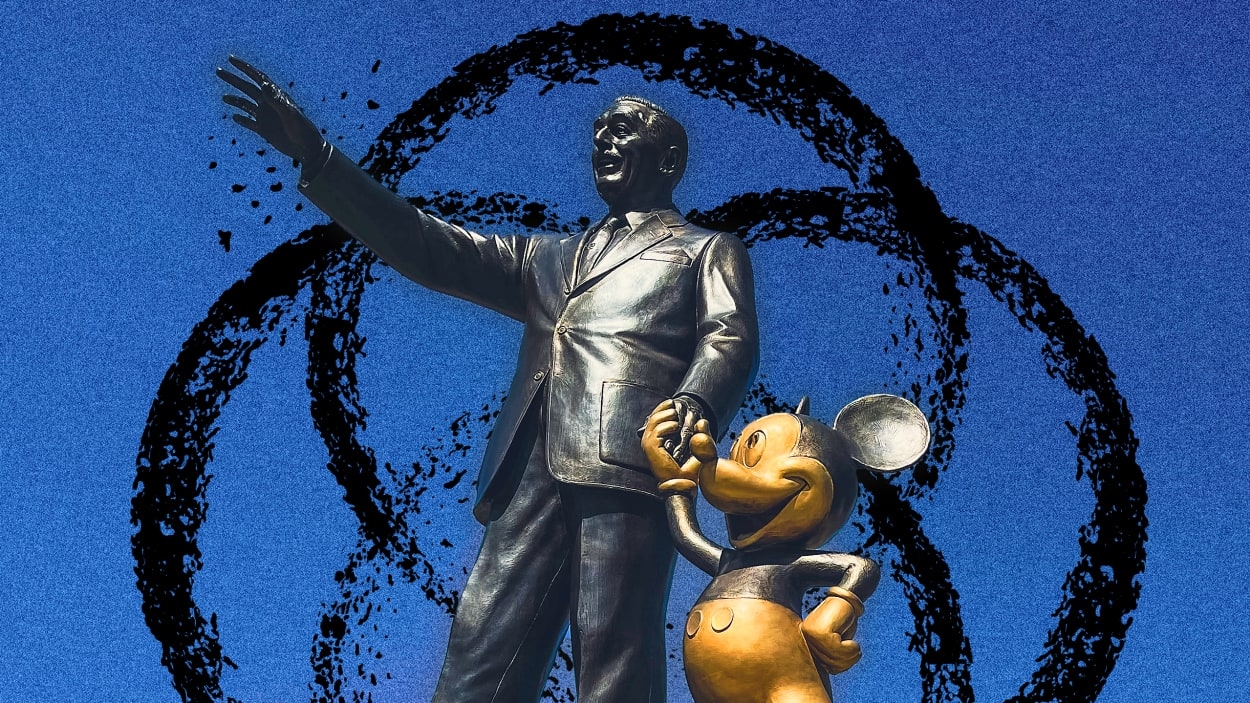Disney’s master stroke to stay in charge of its own destiny
The fate of the Magic Kingdom may now depend on that of the United Kingdom.
The new board of directors of the Reedy Creek Improvement District, the state government entity that oversees the area where Walt Disney World is located, found itself virtually powerless when they took over on February 27.
That’s because before those members (who were handpicked by Florida Governor Ron DeSantis) gained control, the previous board passed a series of restrictive covenants barring the district from using the Disney name without the corporation’s approval—as well as “fanciful characters such as Mickey Mouse.”
The real kicker was the length of the declaration, which will expire “21 years after the death of the last survivor of the descendants of King Charles III, king of England,” according to the document.
It was a checkmate move from Disney CEO Bob Iger (and one that Florida plans to fight in court). But that mention of King Charles? It wasn’t a thumbing of the nose at the governor who has so publicly targeted the entertainment giant. It was just following the letter of the law.
Covenants are required by a concept known as the “rule against perpetuities” to be tied to the lifespan of some person who is alive when the document is signed, with 21 years added on. That rule saw what was known as the “Royal lives clause” added in the 19th century, since royal family members tended to live long lives due to their wealth.
So, should the covenant hold up in court, Florida’s government won’t be able to do much beyond maintaining the roads and basic infrastructure until 21 years after the death of the last living royal, the youngest of which is the just shy of 2-year-old Princess Lilibet of Sussex, daughter of Harry and Meghan.
#longlivelilibet is already trending on Twitter.
How did this happen?
DeSantis targeted Reedy Creek (now formally known as the Central Florida Tourism Oversight District) as a retaliatory move after Disney and its former CEO Bob Chapek spoke out against Florida’s “Don’t Say Gay” bill. It looked, momentarily, like things might settle down when Chapek was booted and Bob Iger once again took the CEO post, with The Financial Times reporting a compromise was being worked on. If so, it fell apart and DeSantis moved forward with the plans to strip Disney’s control of the area.
Many observers were surprised that Disney did not negatively react when DeSantis succeeded or when he named the new board members, which included a founder of the right-wing group Moms for Liberty, who was also the wife of the chairman of the Florida Republican Party, and a former pastor who has called homosexuality “deviant.”
Disney, as it turns out, was keeping its powder dry. Some 19 days before the state takeover was made official, the Reedy Creek board approved the agreement restricting its rights, following open public debate. The state—and pretty much everyone else—failed to notice.
DeSantis hasn’t commented publicly on the move. The new board, however, has lined up law firms to fight the covenant; but to succeed, they’ll have to show that at least one clause of provision is “illegal, invalid, or unenforceable under applicable present or future laws.”
If it can’t, Disney remains in control of its own destiny in Florida for the foreseeable future, having oversight over everything from building new projects and sign-off approval on any exterior changes to the district’s buildings.
Reedy Creek might be a small world, but for now, it’s one where Disney is still firmly in charge.
(19)



